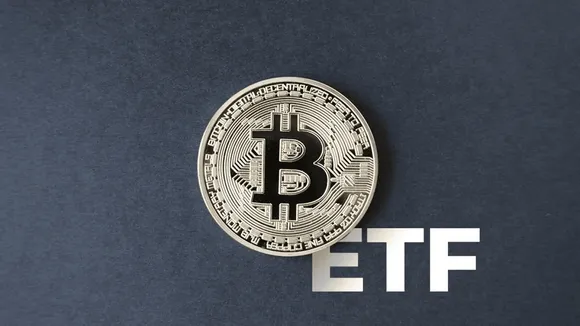
As I sat down with Jim Bianco, President of Bianco Research, in a quaint, sunlit office overlooking the bustling streets of New York, the air was thick with anticipation. Here was a man who has spent years dissecting the intricacies of financial markets, now poised to unravel the complexities of Bitcoin’s recent evolution. Our conversation veered into a realm where ideals and reality collide — the emergence of Bitcoin Spot Exchange-Traded Funds (ETFs) and their ramifications on cryptocurrency’s founding principle: decentralization.
A Double-Edged Sword
“ETFs were hailed as a beacon of accessibility,” Bianco began, his eyes reflecting a tinge of concern. “But beneath the surface, they harbor a paradox that could undermine the very essence of Bitcoin.” He’s referring to the centralization of Bitcoin ownership, a scenario that seems antithetical to the digital currency’s decentralized ambitions. According to Bianco, while ETFs democratize investment in Bitcoin, representing a multitude of investors, they inadvertently concentrate ownership into the hands of a few — primarily colossal entities like BlackRock.
This centralization is not merely a deviation from principle but a potential regulatory minefield. A small number of on-chain shareholders, if predominantly large corporations, would need to navigate the complex web of regulations set forth by entities such as the Securities and Exchange Commission (SEC). The irony is palpable — a tool designed to broaden participation in Bitcoin could, in fact, narrow the field of control.
Navigating the Regulatory Maze
The regulatory implications are significant. As ownership centralizes, these entities become the de facto gatekeepers of Bitcoin, wielding influence that could shape the cryptocurrency’s trajectory. “The focus on Bitcoin ETFs,” Bianco pointed out, “might divert attention and resources from developing a truly alternative financial system.” He fears that an overemphasis on price, driven by ETF investments, overshadows the need for innovation within the ecosystem. It’s a sentiment echoed in the broader discourse, where concerns about concentration risks have been raised in the context of Ethereum ETFs as well.
Regulatory bodies like the SEC are in a precarious position. On one hand, the approval of Bitcoin Spot ETFs could signify a step towards mainstream acceptance. On the other, it challenges them to maintain the balance between fostering innovation and ensuring investor protection in an increasingly centralized landscape.
The Road Ahead: Innovation or Stagnation?
Bianco’s apprehension about the future is grounded in a broader critique of the current trajectory of cryptocurrency. “The allure of quick gains can overshadow the foundational goals of cryptocurrencies,” he remarked. The increase in Bitcoin’s price, while beneficial in the short term, might not equate to long-term value if it doesn’t stem from tangible innovations within the ecosystem. The question remains: Will the focus on Bitcoin ETFs contribute to or detract from the development of a decentralized financial system?
As our conversation drew to a close, the sun dipped below the horizon, casting long shadows across the room. Bianco’s insights paint a picture of a crossroads where the paths of innovation and centralization diverge. The journey of Bitcoin Spot ETFs, while promising to bridge the gap between traditional finance and cryptocurrency, also poses profound questions about the future of decentralization. As the crypto community navigates this evolving landscape, the choices made today will undoubtedly shape the financial systems of tomorrow.

